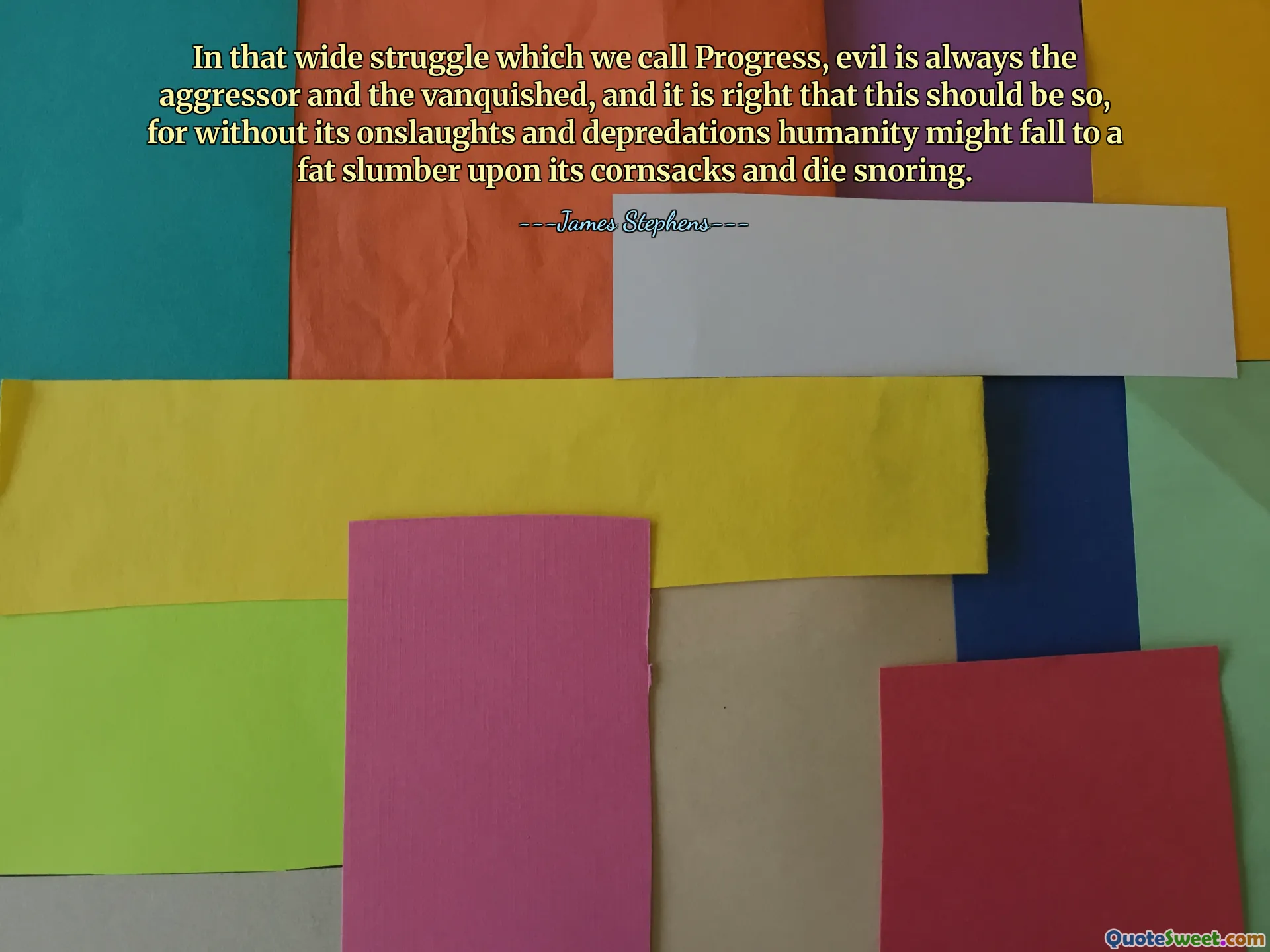
In that wide struggle which we call Progress, evil is always the aggressor and the vanquished, and it is right that this should be so, for without its onslaughts and depredations humanity might fall to a fat slumber upon its cornsacks and die snoring.
This quote presents a compelling perspective on the nature of progress and the role of evil within it. It suggests that advancement and growth in human society are often propelled by confrontation with, and overcoming, negative forces. The metaphor of evil as the aggressor underscores the idea that progress isn't a smooth or purely positive journey; instead, it involves conflicts, struggles, and hardships initiated by malevolent or destructive elements. The imagery of evil's 'onslaughts and depredations' highlights the chaos and disruption often associated with negative influences, but the quote also offers a nuanced viewpoint: such clashes are necessary components of evolution. Without these upheavals, humanity risks complacency—a metaphorical 'fat slumber upon its cornsacks,' implying a sedentary, unchallenged stagnation. This state of comfort may lead to stagnation or decline if individuals and societies become passive, ignoring the need for continual struggle and resistance against inertia. The reflection emphasizes that strife and adversity are not merely obstacles but integral to progress; they serve a vital function in preventing complacency and encouraging development. This viewpoint aligns with historical patterns where significant advancements—scientific, social, or moral—often emerge through conflicts or battles against oppressive or regressive forces. Ultimately, the quote advocates for a recognition of struggle as an essential engine of growth, acknowledging that evil’s role, while destructive, inadvertently fosters resilience and innovation. It offers a somewhat paradoxical but insightful understanding of progress as a dynamic, contested process fueled by ongoing challenges.







